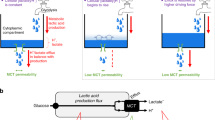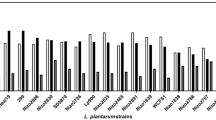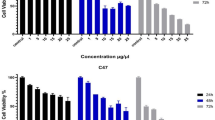Abstract
THE mechanism for penetration of oxalacetate into Lactobacillus plantarum 17–5 is inducible. Unless L. plantarum is grown for a few hours in a medium which contains either oxalacetate, acetoacetate or α-ketoglutarate, there is poor penetration of oxalacetate into cell suspensions of this organism afterwards prepared. Oxalacetate decarboxylase (which is also inducible) can be readily detected manometrically in whole organism suspensions of L. plantarum grown with any of the three compounds already mentioned, but can only be detected in disrupted (acetone-dried) organisms if the bacteria had been grown with L-malate, a compound which induces synthesis of oxalacetate decarboxylase but does not induce the mechanism for oxalacetate to penetrate the cell1. An agent which increases cellular permeability, at least with respect to oxalacetate, may be detected by increase of oxalacetate decarboxylase activity of undisrupted L. plantarum which had been grown in a medium containing L-malate.
This is a preview of subscription content, access via your institution
Access options
Subscribe to this journal
Receive 51 print issues and online access
$199.00 per year
only $3.90 per issue
Buy this article
- Purchase on SpringerLink
- Instant access to full article PDF
Prices may be subject to local taxes which are calculated during checkout
Similar content being viewed by others
References
Nathan, H. A., J. Gen. Microbiol., 17, 415 (1961).
Nathan, H. A., Arch. Microbiol., 38, 107 (1961).
Nathan, H. A., Proc. Fourth Intern. Cong. Clin. Chem., Edinburgh, 169 (1960).
Nathan, H. A., and Friedman, W., Proc. First Intern. Conf. Protozool., Prague (1961).
Author information
Authors and Affiliations
Rights and permissions
About this article
Cite this article
NATHAN, H. Alteration of Permeability of Lactobacillus plantarum caused by Chlorpromazine. Nature 192, 471–472 (1961). https://doi.org/10.1038/192471b0
Issue date:
DOI: https://doi.org/10.1038/192471b0



